“Even though Heavenly was the band that I wanted to be in, it never quite sounded how I wanted it to sound,” says Amelia Fletcher while talking to Pennyblackmusic with her husband and musical partner of many years, Rob Pursey. “For example, at one point, I was listening to a lot of Teenage Fanclub, and I was thinking we need sludgy guitars and we need to be slower.” “I remember being frustrated that I would write these classic Teenage Fanclub songs and they didn’t come out that way,” she laughs. “That was partially because I couldn’t describe what I wanted to do, and partially because the rest of the band did what they wanted to do, but the outcome of that is really positive. If we had been a band like Teenage Fanclub, we are a band that still wouldn’t be heard of today. I think not sounding like any of the bands we wanted to sound like has made quite unique, and it is probably what has given us lasting power.” Fletcher and Pursey are talking to Pennyblackmusic in May a few days before their 90’s indiepop cult band Heavenly are due to reunite for the first time in almost thirty years for three gigs, a small warm-up show near their home in native Kent and two bigger shows at the Bush Hall in London. They are also reissuing on vinyl through their new label Skep Wax Heavenly’s four albums at six-month intervals. The first of these, ‘Heavenly Vs Satan’ (1991), was re-released at the end of last year, and the group’s second album, ‘Le Jardin Du Heavenly’ (1992), came out again to coincide with the shows. Heavenly’s third and fourth albums, ‘The Decline and Fall of Heavenly’ (1994) and ‘Operation Heavenly’, will be released respectively at the end of this year and in 2024. Heavenly was formed out of the ashes of Talulah Gosh, a notoriously chaotic but short-lived Oxdord-formed outfit, which involved four of its members, Amelia Fletcher (vocals, guitar), Peter Momtichiloff (guitar), Amelia’s brother Matthew (drums) and briefly Pursey (bass). Heavenly became renowned for its upbeat, bouncy tunes which it combined with Amelia’s often self-deprecating lyrics and more serious thoughts about women’s rights and date rape. It expanded into a five-piece with the induction of Cathy Rogers into the line-up on keyboards and vocals at the time of ‘Le Jardin Du Heavenly’, but came to an abrupt, tragic end in 1996 shortly before ‘Operation Heavenly’ was released when Matthew Fletcher took his own life, Amelia Fletcher and Rob Pursey went on to work with Momtichiloff and Rogers in their next band Marine Research, which released an album, ‘Sounds from the Gulf Stream’ (1999), and have since gone on to perform together in acts including Tender Trap, The Catenary Wires and Swansea Sound. We spoke to them about the gigs and the reissue of their albums. PB: Why have you decided to reform Heavenly now? AF: I have had a sneaky desire to reform Heavenly for quite a long time but Rob in particular wasn’t very enthusiastic. We didn’t even ask the others. We were going through all our old stuff during lockdown and, as we had started Skep Wax and we were putting out the old Heavenly albums, it became a question to ask ourselves with a little more urgency. RP: We became aware that there was probably more love for the band out there than we had anticipated. By immersing ourselves again in the songs,00000000 the pictures and the videos, it started to bring things back to life for us. AF: Starting our own label meant that we were engaging actively with a lot of journalists and radio people that we were sending stuff out to. We realised how much interest there was. It was more than we had perceived. So, we decided to broach the subject with Cathy and Peter, and we weren’t sure if they would say yes, but in fact they were pretty enthusiastic. PB: And then you got Ian Button involved as well? AF: We did. He is the perfect drummer to do it with as Matthew is not around. He is a very sympathetic person and a great drummer, and we knew that he would do it in an appropriately respectful and sensitive and relaxed way. He has been in several different bands with Rob and I. It would be harder to do Heavenly with someone that we didn’t have that really strong relationship with. That said, Pete and Cathy hadn’t met him before. They met him at the very first rehearsal (Laughs), but fortunately they got on very well as we knew they would. PB: How easy has it been getting the four of you, five if you include Ian, in the same room because Cathy was living abroad at one point? RP: She was, but she is living in London again now, and Pete spends most of his time in London, so it wasn’t all that difficult. Unlike Amelia and Pete and I, Cathy hasn’t been in any bands since we stopped. She took her old keyboard out of a dusty place. It had some extra stickers on it (Laughs). One of her kids had been learning the piano on it, so it had become a kind of tuition aid but it is back in action. She has just stepped back into it like it was only a few weeks ago. PB: A lot of thought has gone into the vinyl LP reissues. They all come with additional tracks and lavish sleeve notes… RP: One of the things about Heavenly is that everyone in the band is a pretty good writer. It wasn’t difficult to get everyone to write down some kind of reminiscence, and that has also been another part of the process of us getting back together. PB: The name Heavenly is effeminate and not very masculine. While men and girls alike were behaving in an often laddish way in the 1990s, Heavenly was not like that all. Did you choose that name as a reaction against that? AF: We definitely did. At the time we formed, Britpop and all the laddishness that came with it had not developed. What there was was a very strong dance scene which we were clearly not part of, and the people that were left in the indie scene were largely male, almost by standard issue. There were some quite good bands, but there weren’t many females in indie bands at that point and the things that the music press were writing about felt quite macho. RP: One of the other names we thought of calling ourselves was Petal. We basically wanted to have a name that was the opposite of macho, the opposite of ‘rockist’ as we would have said in those days. We were well aware that the whole music scene at that time was very dominated by sexist behaviour, and I think as a man - and I guess that it is true of the others as well - we wanted to be in a loud band but we didn’t want any part of that posturing, preening version of malehood, and so we were very happy to be in a band called Petal or Heavenly. AF: ‘Heavenly’ was the name that stuck. It is funny. I think that we came up with the name of Heavenly at the same time as Heavenly the record label came up with the name of ‘Heavenly’. We were trying to be unmacho. They w4re trying to be cool, but the name for them also had drug associations. We chose the same words, but for very different reasons (Laughs). When we were going through our old stuff to put the little booklets together that accompany each reissue, I found an old interview with me in the music press from the time of ‘Heavenly Vs Satan’ where I am absolutely damning about the music press’s treatment of women and its inability to cope with anyone who didn’t fit into a particular type of genre of women. I didn’t remember that I was so openly critical at that time but I obviously was. PB: In one interview at the time you said that you didn’t see yourself as a feminist. Would you say that now? AF: I think that was because when I was growing up feminists seemed to be all older women, and they seemed to be fighting battles that had nothing to do with me at that point. They appeared to be fighting battles about whether they were allowed childcare and glass ceilings, which were obviously important, but I didn’t think that they were relevant to me. I was angry about the treatment of females in the music industry without quite realising that that made me a feminist. I wouldn’t have applied that word to myself. It wasn’t until I discovered riot grrl in late 1992 that I realised that there were all these other girls who were angry about the same things as me, who called themselves riot grrls, Riot grrls were a form of feminism, but in the process of calling themselves ‘riot grrls’ it meant that it was a new word that I could subscribe to in a way that I never could with the word ‘feminist’. PB: Talulah Gosh had two lead singers, but when you started out with Heavenly you did all the lead vocals by yourself, Amelia. Why did you decide to involve Cathy? AF: I think I would have preferred having two singers in the band from the start. Even on the first Heavenly album there are lots of harmonies. My friends Eithne (Parry) and Elizabeth (Price), who were in Talulah Gosh at separate times, sing on the first Heavenly album as backing vocalists, but they never sung live with us. I love backing vocals and harmonies as I have always had an obsession with girl bands and 60’s girl groups. I can’t really remember why I didn’t make more of an effort to have another female in the band. It was a natural thing for me to do, but I didn’t know anyone who I thought would be good. Elizabeth wouldn’t want to and Eithne was away doing other things, so I think that I was always ready for someone to turn up who seemed like they would be an appropriate person, and that person who turned up was Rob’s girlfriend at the time and that was Cathy, and it also turned out that not only could she sing but she could play keyboards really well. PB: It has been said that Heavenly took all the ideas that you had in Talulah Gosh and made them coherent. Do you think that is true? AF: In Talulah Gosh all of us wrote music. We were all learning. None of us had written songs before. None of us quite knew what being in a band was about or how to do things in a coherent or a sophisticated way. We were pretty all over the place as a band. I think that was kind of what made us good, but it also made none of us happy with the way that we were as it wasn’t where anyone wanted to be with our band (Laughs). RP: I was in Talulah Gosh for three gigs and then I left. I went back to live in Bristol. The songs in Talulah Gosh are great, but it wasn’t very coherent and it was destined not to last very long. Everybody was writing songs. Everybody probably got carried a bit away. It became a very briefly famous and notorious thing. It was on a very steep projectory up and down, whereas with Heavenly Amelia was the main songwriter. It started off in a slightly calmer way. It was more self-contained. AF: Peter and Rob then eventually started their own band which was called The Umbrella Birds with other people, and I said to them, “Since you have got The Umbrella Birds to do you songs, can Heavenly be for my songs?” So, Heavenly was just a vehicle to do my songs. I was a complete dictator at first (Laughs). That eased slightly later. No one ever wrote music but people eventually contributed words. I just wanted to be much more consistent. PB: You have returned to these songs after an almost thirty year absence. What do you make of these five young people who recorded these four albums now? AF; I am quite surprised at how together we were, that we knew what we were doing. My brother was still in his teens, but the rest of us were in our early twenties. We were very young. RP: The albums were recorded pretty quickly, and I think what I notice is that on the musical side there was an implicit understanding between me and Peter and Matthew. We were really listening to each other. I can notice that now. At the time I wouldn’t have thought about it, but we were quite a tight band. I think it surprised people as were often seen as being shambling because of Talulah Gosh. There was a degree of that in terms of our personal presentation. We didn’t come on to stage exactly like rock stars and there was a degree of forgetfulness, but when we played we were actually pretty tight. PB: Heavenly broke up abruptly after Matthew’s death. How quickly did you make the decision not to continue? AF: It was just obvious. Immediately. I don’t even remember us thinking about it. We had a tour booked and that tour was immediately cancelled. Matthew was so integral to the band, and I wasn’t thinking really straight. It seemed the right moment to stop it and get on with the rest of our lives. I don’t think it ever dawned on to me to keep going. RP: We obviously had to stop. No one felt like making any music. Matthew’s death affected Amelia more than it did us, but it affected us all pretty badly. He was her brother, but it also seemed pretty tragic that she wasn’t doing the thing which she loved doing most which was making music. I remember that it was about a year later that we said you have suffered enough, and that was when we started talking about doing music again. PB: And you formed Marine Research. Why was that band so short-lived? RP: We weren’t living in the same town anymore and our lives had moved on. Maybe we had decided the party was over. We were busy with our day jobs, and it wasn’t the same. We did do quite well, and I am glad that we got that LP, ‘Sounds from the Gulf Stream’, done. AF: We did pretty well and John Peel really liked ‘Sounds from the Gulf Stream’. I am not totally happy with the production, but there are lots of good songs on there. It turned out to be a really important album for me to write because a lot of songs were about Matthew. It was a way of coming terms with things. PB: Do you see these shows and vinyl reissues as being in part a tribute to Matthew? AF: I see them as a tribute to the band we were, but Matthew has been very much in our minds all the way through. We are not doing these shows for him, but I think that it is nice to think of him as being part of the whole thing. It has been such a long time now. I have to admit that day to day I don’t think of him that much because it has been so long since he died. Obviously just after his death and for a long time afterwards I thought about him hugely, but this is just what time does. It has been good but emotional revisiting these records. It also has made me realise what a good drummer Matthew was, because as his sister who was always cross with him I certainly didn’t realise that (Laughs). RP: I think we all do. It was such an abrupt end to a band. and for a lot of people who liked us it was upsetting as well. We are giving some of the money from the gigs and reissues to Grassroots, a suicide prevention charity. We don’t want to make too big a point about it, but in supporting charities like hat it is trying to help people or their friends who are in danger of doing what Matthew did. He was an integral part of what the band sounded like. I haven’t played with a drummer like him before. He was a very good drummer, but he had a particular style. He was more anarchic than other drummers, and his energy was part of what made us so dynamic live. PB: Thank you.
Band Links:-
https://en.wikipedia.org/wiki/Heavenly_(British_band)https://www.facebook.com/profile.php?id=100063860134303
https://twitter.com/HeavenlyIndie
Play in YouTube:-
Picture Gallery:-
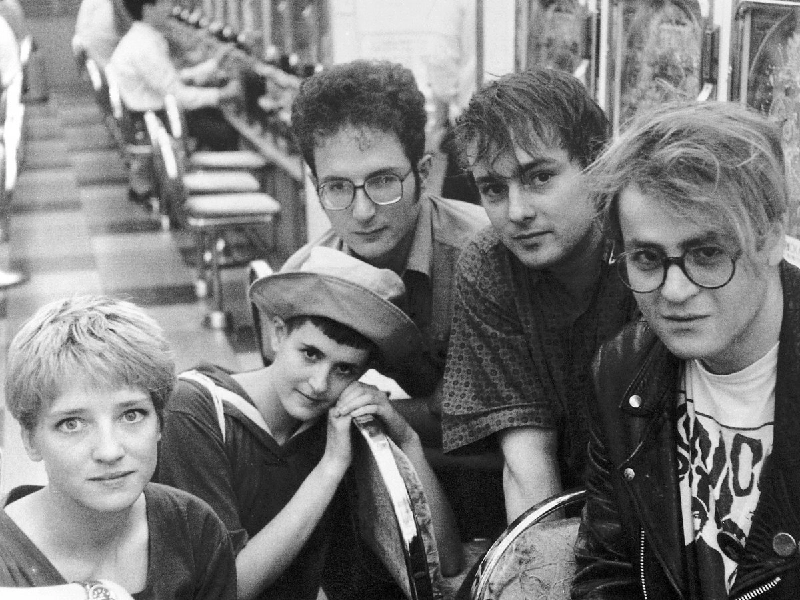
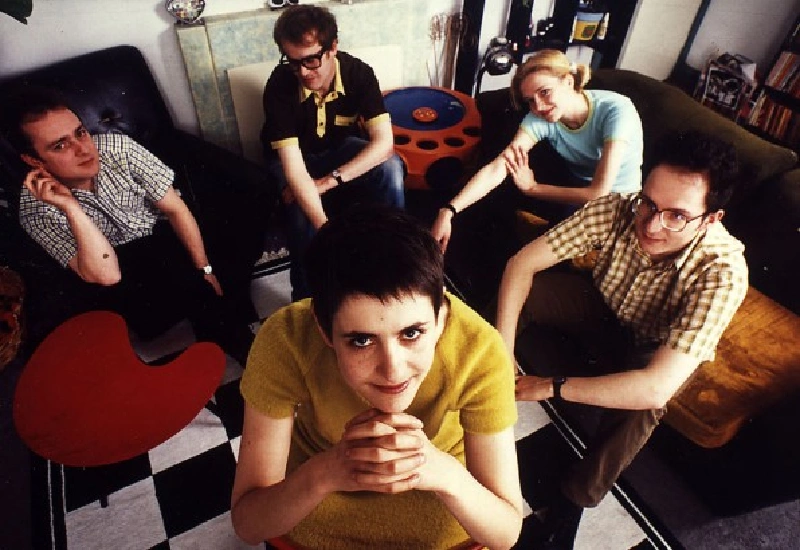
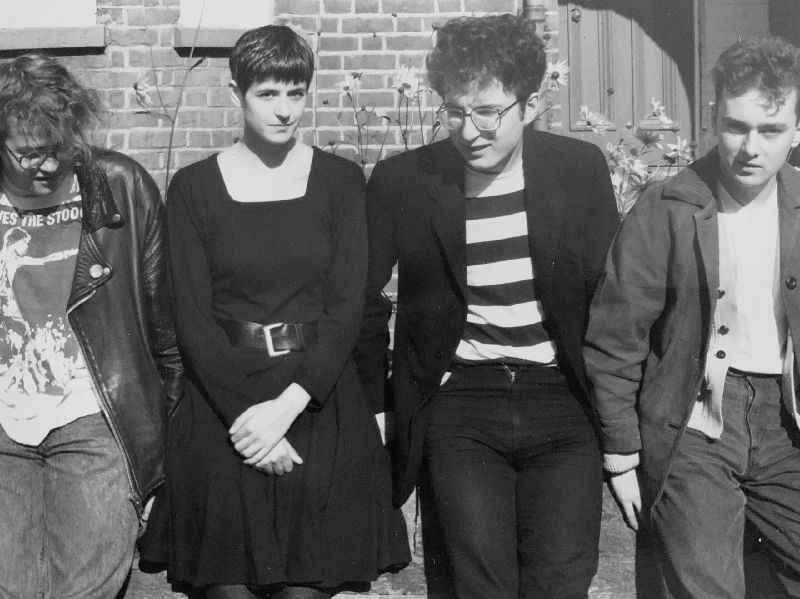
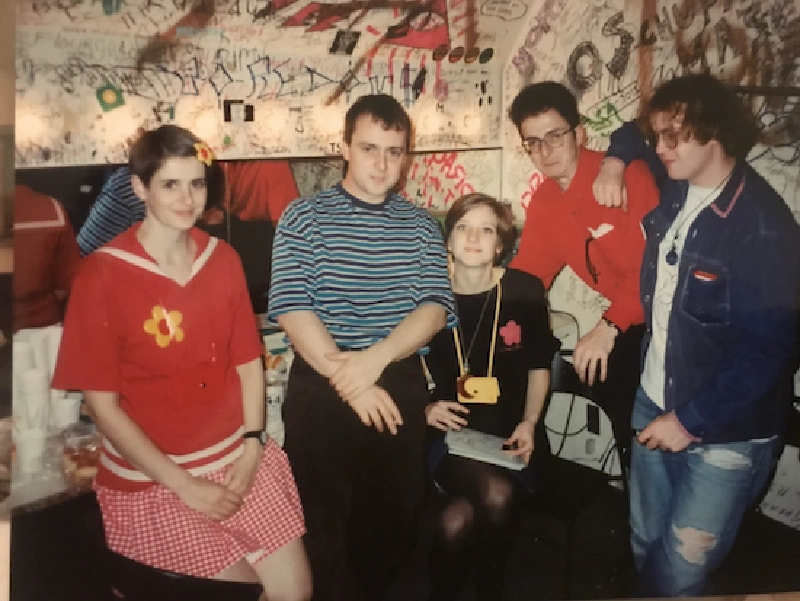
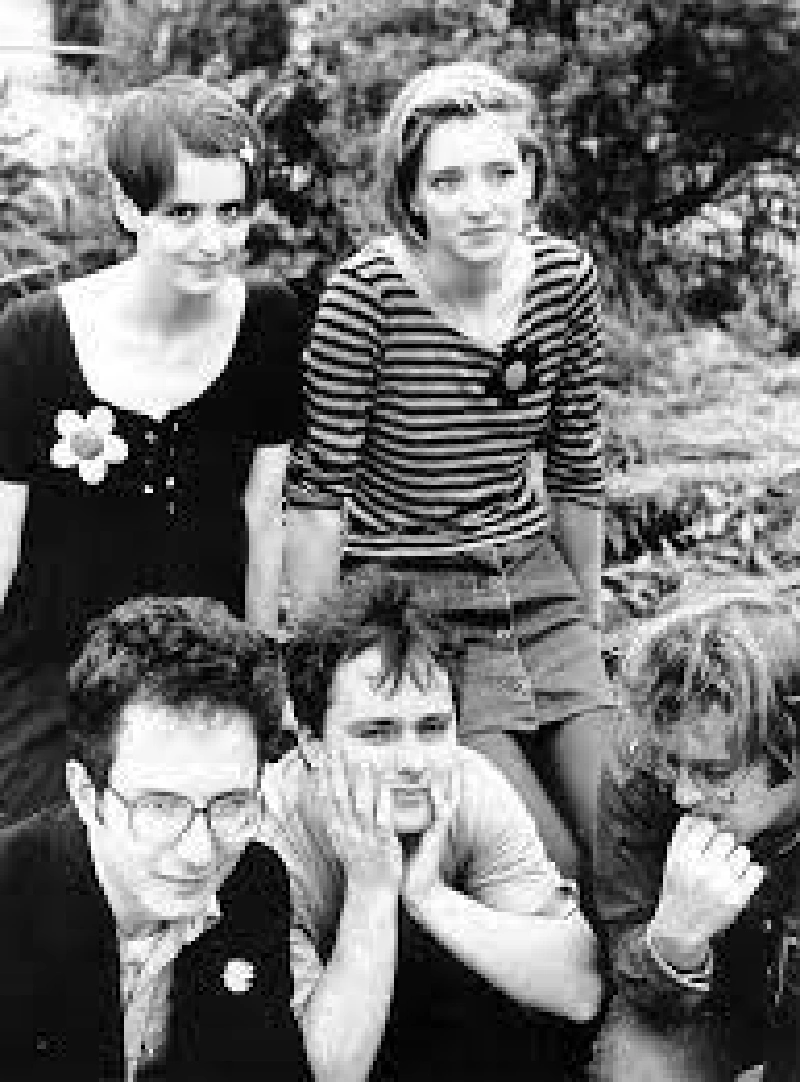
intro
Amelia Fletcher and Rob Pursey speak to John Clarkson about the reformation of their 90’s indiepop band Heavenly for three gigs and the vinyl reissue of their albums.
favourite album |
|
The Decline and Fall of Heavenly (2024) |
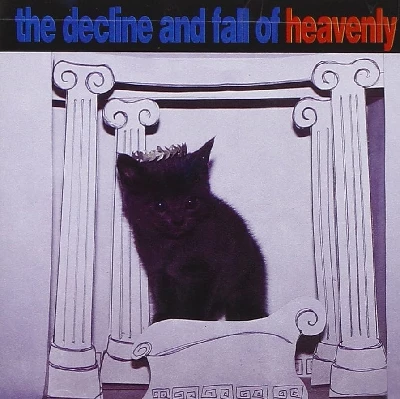
|
| In our Re:View section, in which we look back at albums from the past, Tommy Gunnarsson finds that iconic indiepopsters Heavenly's 1994 third album, ‘The Decline and Fall of Heavenly’, which has just been re-released on on vinyl, still stands the test of time. |
| P.U.N.K. Girl EP (2008) |
most viewed articles
current edition
Peter Doherty - Blackheath Halls, Blackheath and Palace Halls, Watford, 18/3/2025 and 21/3/2025Armory Show - Interview with Richard Jobson
Liz Mitchell - Interview
Deb Googe and Cara Tivey - Interview
Lauren Mayberry - Photoscapes
Max Bianco and the BlueHearts - Troubadour, London, 29/3/2025
Garfunkel and Garfunkel Jr. - Interview
Maarten Schiethart - Vinyl Stories
Clive Langer - Interview
Sukie Smith - Interview
previous editions
Heavenly - P.U.N.K. Girl EPBoomtown Rats - Ten Songs That Made Me Love....
Trudie Myerscough-Harris - Interview
Doris Brendel - Interview
Beautiful South - Ten Songs That Made Me Love...
Kay Russell - Interview with Kay Russell
Dwina Gibb - Interview
Pulp - Ten Songs That Made Me Love...
Barrie Barlow - Interview
Sound - Interview with Bi Marshall Part 1
most viewed reviews
current edition
Davey Woodward - Mumbo in the JumboNigel Stonier - Wolf Notes
Wings - Venus and Mars
Only Child - Holy Ghosts
Kate Daisy Grant and Nick Pynn - Songs For The Trees
Neil Campbell - The Turnaround
Philip Jeays - Victoria
Darkness - Dreams On Toast
Suzanne Vega - Flying With Angels
Charles Ellsworth - Cosmic Cannon Fodder
Pennyblackmusic Regular Contributors
Adrian Janes
Amanda J. Window
Andrew Twambley
Anthony Dhanendran
Benjamin Howarth
Cila Warncke
Daniel Cressey
Darren Aston
Dastardly
Dave Goodwin
Denzil Watson
Dominic B. Simpson
Eoghan Lyng
Fiona Hutchings
Harry Sherriff
Helen Tipping
Jamie Rowland
John Clarkson
Julie Cruickshank
Kimberly Bright
Lisa Torem
Maarten Schiethart